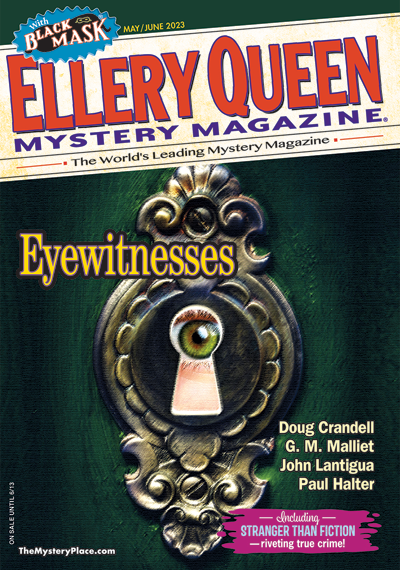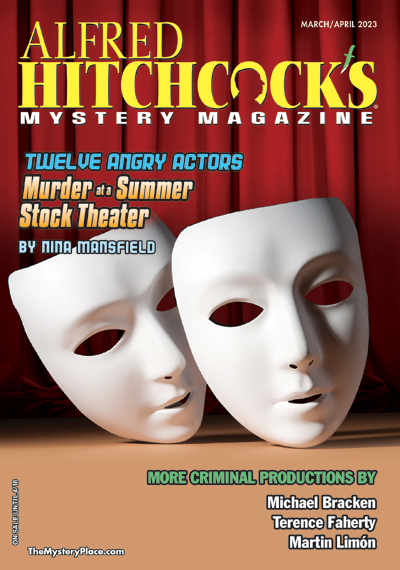"The Incurious Man," by Terence Faherty, in Ellery Queen's Mystery Magazine, May/June 2023.
This is the tenth appearance in this column by Faherty, which ties him at the tippy-top with Mark Thielman. Mark is a fellow SleuthSayer while Faherty is a SleuthSayer alum.
I think it was Michael Mallory who predicted that most crime fiction in the future would be set in the days before smart phones and the Internet made certain kinds of research (and calls for help) inconveniently convenient. This story is an example. It is set in the 1990s and if it were written about the world of today it would have to be quite different.
Owen Keane is a private detective and he is starting a job at a law firm. Well, not much of a job. He has been hired on a temporary basis mostly to provide company for a friend who has reluctantly taken over the family business.
But on his first day, taking the train from New Jersey to New York City, he encounters something very strange. Every day for a week a woman near Rahway has held up a sign for people on the train to see. The signs seem ominous, if not threatening, and refer to Giovanni and Elvira, whoever they are.
Everyone on the train is fascinated by the signs except one man who ignores them. And that attitude fascinates Keane, and makes him suspicious, because he is a curious man. His lawyer friend says: "It might be dangerous for you two to come together. Like matter meeting antimatter. There could be an explosion."
Of course Keane ignores his advice and discovers a particularly cruel scheme. Terrific story.





